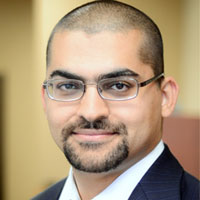Things to Do Before Going for Hair Restoration Surgery
Human beings exhibit an innate desire to look good. This trait transcends region, race, sex and economic background. Everybody tries to improve their looks in one way or another, within the best means possible.
Hair styling is considered the most glamorous way to accentuate one’s looks. People are ready to spend hours together in getting the best hairdo when attending social gatherings. When such is the case, hair loss can have disastrous effects on a person’s professional and personal life.
When a person starts loosing hair they are mentally aggrieved and look for any number of avenues to find a solution. In order to maintain this crowning glory enough research has been done in the medical as well as the cosmetic fields.
In their quest for hair restoration many hair loss patients end up in the hands of unscrupulous elements who promise more hair and end up increasing the patient’s agony. When a hair loss patient wants to go for hair restoration he or she must consider the following steps.
Thorough Research
It is not enough to go for the most expensive method, care should be taken to find out about all the available options, the success rates, time taken for procedure, the period taken for hair restoration, patient feedback, need for follow-up treatments if any, permanency of solution, side effects, medication if required and a detailed explanation about the procedure by the surgeon.
Cosmetic surgery options for hair restoration include FUE, FUT and robotic hair transplant. The method which will suit a person with respect to economics and comfort level should be chosen. The surgeon should also explain the procedure to avoid complications in the future with the patient.
Results and Expectations
In order to avoid unnecessary shock after undergoing the treatment the patient must be given a time chart of how the hair will grow and at what rate. If results don’t meet expectations patients may feel cheated. Quick solutions should not be promised by the surgeon if it will take time to restore hair for the patient. The patient should have an idea of what to expect and should not dream of dramatic results in a short span of time.
They should be physically and psychologically prepared to wait for the treatment to take root and for the hair to grow gradually.
Clinic Selection
If a person is serious about restoring his hair then he/she should look for the best clinic to trust. They can use online feedback, friend’s recommendations and so on to zero in on best clinic. Depending on their economic position they may opt for out station clinics too instead of trying to make do with what is available within their neighborhood. Many celebrities even fly overseas to get the best procedure done.
Before preparing oneself for hair restoration proper research of treatment method, results and clinic is imperative. Instant solutions may not be permanent. Be prepared for gradual restoration and do not expect anything dramatic.
Hairfear
Frequently asked questions about hair transplant procedures
How much does a hair transplant cost?
Hair transplants can vary in price based off of the area in the world that you are interested in getting a hair transplant as well as the size of the area where you may need a hair transplant. Experienced doctors in the United States will often charge some of the highest prices for a hair transplant worldwide and this is why so many travelers make the move to other parts the world like Turkey, India, Thailand, Mexico...etc for their hair transplants.
Will a hair transplant hurt?
Although hair transplants may look like a particularly
unpleasant or painful experience is actually very little discomfort involved
with the surgery itself. Hair transplants are always done under an anesthetic so there's absolutely zero pain during the treatment itself. Many people actually relate the process as being very similar to going to the dentist for filling or root canal. Mild pain can persist over the course of postop treatment but he generally just resumes for a few days.
Who can deliver the best surgery?
It's usually best to consider working with surgeons who have and IAHRS certification or international alliance of hair restoration surgeons recognition. IAHRS can often deliver recommendations for the best surgeons in each particular area.
Is this scarring noticeable?
Any type of hair transplant will require the use of incisions throughout the scalp. There can also sometimes be a small scar from the donor area towards the back of the scalp. Asking to look at photos of the surgeon's previous work will help you to see roughly how bad the scarring could be. In most cases an experienced professional can limit the look of scarring and noticeable marks from the surgery.
How long does it take for the hair to grow?
In most cases hair growth will start within eight months and you can start to see a full effect from the hair transplant after a full year. The initial signs of growth can usually start between 3 to 4 months after the surgery.
Are the results permanent?
The hair follicles that are transplanted are generally the ones which are genetically resistant against the symptoms of baldness. As long as you receive hair loss treatment later in your life after the symptoms of balding have started to subside, you can have a better chance at permanent results.
While everyone know you've had surgery?
If you want to limit the chance that people may find out about your surgery it's important to give at least three weeks of healing as the surgical area will be affected and red just after surgery. After around a month of healing it can look far less noticeable. You could consider wearing a hat while time passes or opting for some extra time off if possible.
How long should I rest after surgery?
It's recommended to rest for at least a few days after surgery so that your body can recover. Trenton to over exert yourself and limit sexual activity, running in the gym for around 10 days after surgery.
Is it possible to lose more hair as a result of surgery?
There is always a chance of shock loss which happens when the hair is weak and miniaturizing after the surgery. As long as the surgeon is choosing the correct hair follicles and performing the surgery well it's possible to minimize the chance of this happening however.
Will I need another hair transplant?
The need for another transplant really depends on the individual. With a solid foundation surgery and working to potentially bolster results with drug therapy, you can improve the stability of the hair that was transplanted as well as prevent further loss. Getting a hair transplant early
on in your 20s or early on in life could lead to needing long-term transplants as hair loss can be progressive.







